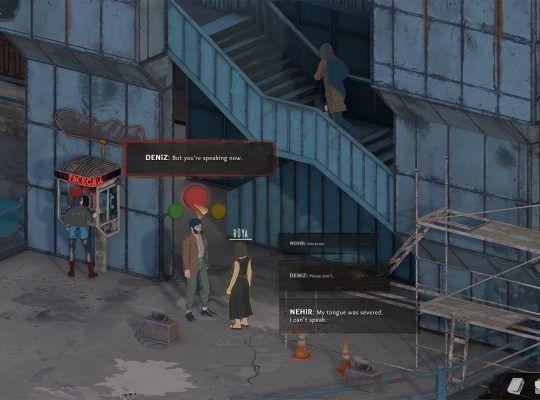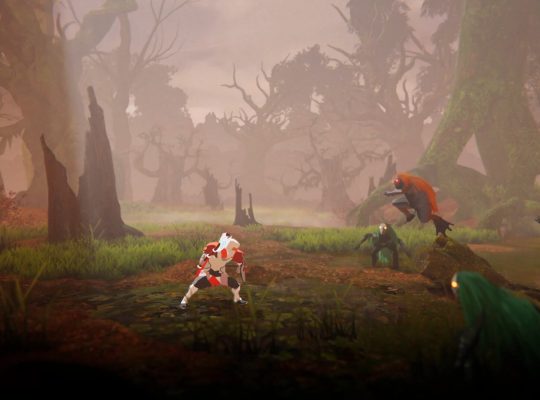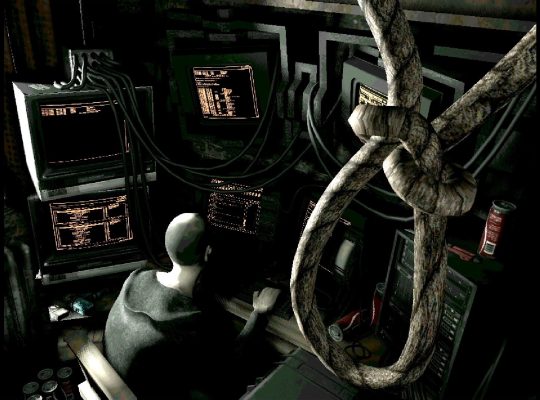Just as we had the opportunity to get to know Želja Kos and his game Pompeii: The Legacy, another interesting project is being developed in the same studio and office – Kaiserpunk. We sat down and talked with Mario Mihoković, co-founder and CEO of Overseer Games, a small studio with 11 employees, who are intensively working on a unique city-builder title that will combine elements of grand strategy.
We had the opportunity to go through the studio, see how the development process works, and they showed us the references and programs they use for animation, artistic design, and building modeling. For those who are not yet familiar, Kaiserpunk will be released on February 27 for PC via Steam. They also recently successfully completed another playtest, during which more than 10,000 players played the game.
They are most proud of the AI, which is a key part of the game
“We can proudly say that our game connects fans of city-builder titles and grand strategy. Players who usually enjoy Paradox Interactive titles often find something that attracts them in Kaiserpunk,” Mihoković told us. “The playtest and demo have proven to be very successful. We are still working on improving certain strategic elements, especially the combat system, which many players had complaints about. However, we are nearing the end of the development cycle, and the game looks very good in its current state. Players particularly enjoy the territory conquest and the setting itself – an alternative history of Europe.”
Mihoković particularly praised the AI system within the game, highlighting the numerous changes that have been made: “The AI in Kaiserpunk is quite complex. It won’t be passive and just observe your moves. Each front has its own personality and approach. If you attack nearby provinces, the AI will react, arm itself, defend, and even form alliances to provide resistance. It will not take your expansion lightly.”

City-builder mechanics are not the only important aspect of the game
In Kaiserpunk, players start as leaders of a faction with one capital city. The city-building aspect involves organizing production chains, managing the workforce, and effectively connecting structures. As players gain control over new regions, the focus shifts. Instead of building new cities, they make strategic decisions about the development of those areas through trade, diplomacy, or conquest.
Although the AI adds a significant dose of challenge to the game, Mihoković also emphasized other key aspects: “You cannot win by focusing only on city-builder elements. You can progress to a certain point, but the game has several main objectives that you must fulfill to complete it. At some point, you will run out of resources. While diplomacy and trade can help, most players have realized that the fastest way to achieve goals is through warfare.”
Mihoković pointed out that managing and controlling a larger number of provinces can be challenging if you do not establish balance: “Although city-builder elements are present, the game forces you to make key decisions on your own. That is why conquering new provinces can be risky, as it requires significant resources. The treasury depletes quickly, and waging war is extremely expensive and not always profitable. Especially when enemies specifically target your key points, such as farms or industrial facilities, which can significantly weaken you and complicate further warfare.”

A hybrid that captivated players
Creating a hybrid game that combines two complex genres, grand strategy and city building, was not easy. They faced challenges in balancing strategic depth with complex building mechanics. They carefully simplified certain features while maintaining meaningful gameplay. Additionally, they developed a notification system that helps players keep track of global events while focusing on construction. For example, if an enemy faction begins to gather troops at the border, players will receive a warning so they can prepare.
The title of the game reflects its era and aesthetics. "Kaiser" refers to the early 20th century, with a particular emphasis on the period under German influence after World War I. The "Punk" element symbolizes the alternative history of the game and imaginative technologies, adding a creative twist to traditional historical settings. This has allowed for a lot of freedom in customization, both through character avatars and the bonuses through heritages (nations), so that no gameplay is the same. Especially since each playthrough brings new stories, where you can choose a different approach to gameplay each time.
Regarding multiplayer, Mihoković noted that it is planned, but nothing is certain yet: "We'll see after the game is released. I can't promise anything, it's very difficult to add multiplayer to such a complex game."

And the state of the industry within Croatia?
Toward the end of our conversation, we touched on the state of the Croatian gaming industry as well as the situation with publishers: “The state of the industry in Croatia could always be better. Unfortunately, we’re not yet at a level where we have domestic publishers, which would make things significantly easier, especially when it comes to marketing. The situation is improving; certain progress is happening and being encouraged, but it’s still not enough. In most cases, we’re left to fend for ourselves. Publishers are generally afraid to experiment, and that’s the main reason why we don’t have a publisher for our game. We dared to create something new, something that, for now, is proving successful,” Mihoković pointed out.
He also shared an interesting anecdote: “When we first organized Develop Blue in Dubrovnik, it was a small event, mostly for people from the region. During a discussion about the state of the industry here, representatives from Serbia told us that they were somewhat envious because we are creating our own IPs and games, while they mostly depend on other studios and larger publishers, without rights to their own projects. Now the situation is changing; we are trying to reach the global market, while they are increasingly working on publishing their own games.”









